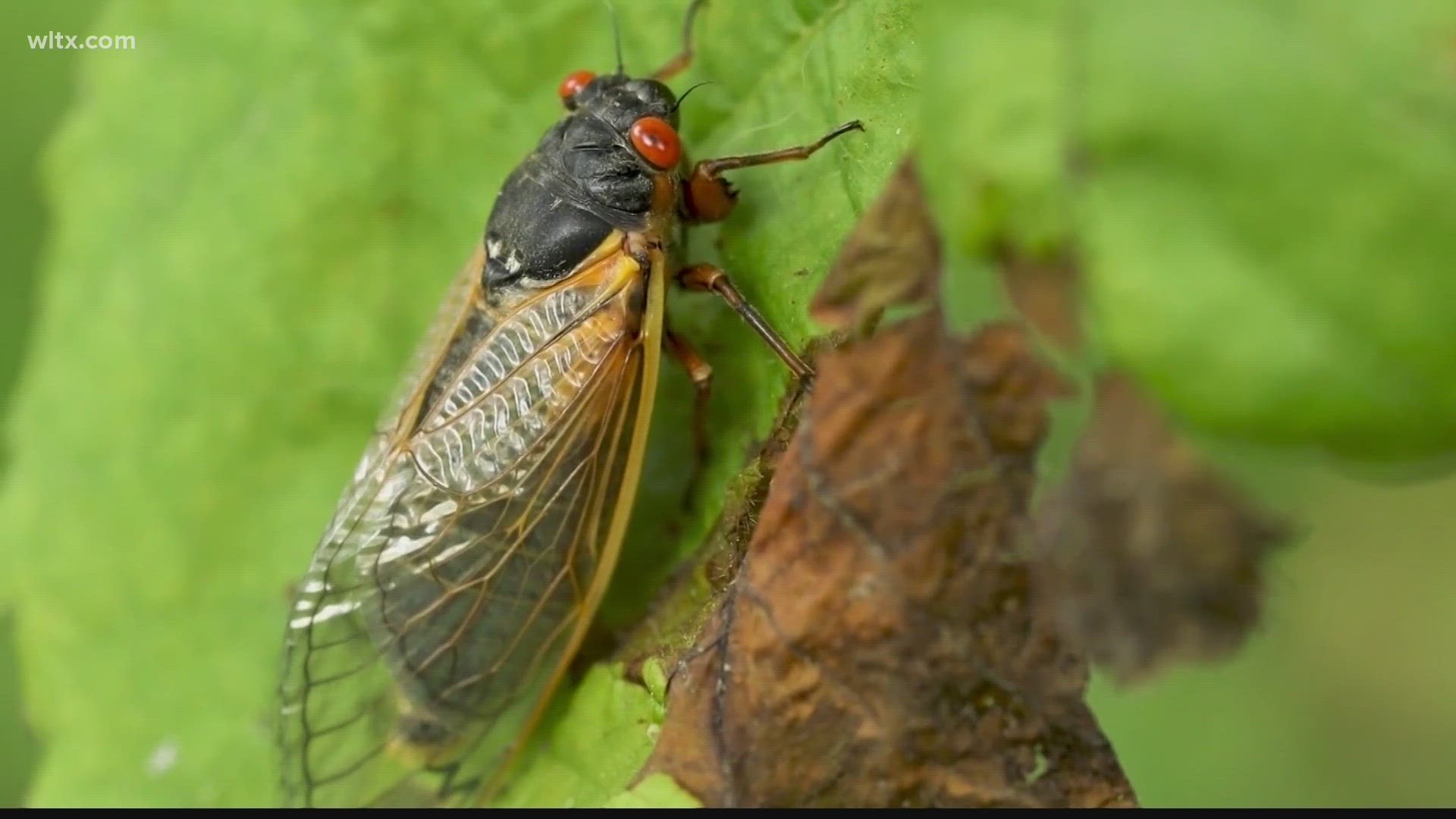COLUMBIA, S.C. — As spring approaches, billions of cicadas are gearing up to emerge after spending 13 years underground. These insects, known for their loud buzzing mating calls, are set to make their presence known across South Carolina in the coming months.
"That buzzing sound you hear high in the trees are the males calling the females. Females can't make a sound but both females and males can hear," Clemson Extension Entomologist Eric Benson said.
Although cicadas emerge every spring in South Carolina, this year will differ slightly.
"In this case, for the periodical cicadas, the Great Southern Brood XIX that we will see in SC feed for 13 years underground. Then, almost to the day, all of them will come out in a given area, emerge and shed their final immature skin and turn into the adult phase with wings. They will then fly up into the trees where the male will call the female and they will have a mating party," Benson said.
With over 150 species of cicadas, periodical cicadas like Brood XIX are easy to distinguish from cicadas we see annually.
"The periodical cicadas, which we have in 7 different species in North America, are really cool. They are about a inch and half, so a little smaller, with a back body, brought orange veined veins and bright red eyes. They are pretty distinctive when you see them," Benson said.
According to Benson, Brood XIX hatches between May and July and will be more noticeable in rural or less developed northern and western South Carolina areas.
"The way that they are successful is that they essentially overwhelm nature every 13 years, so we should have millions, if not billions, where they emerge," Benson said.
These estimates, Benson said, will result in roughly one million cicadas per acre of undeveloped land. "I personally see it, where they emerge, as a sign that this is a healthy ecosystem if these true bugs are emerging."
That healthy ecosystem could be your backyard, so Benson says there is no need to spray for these unharmful insects.
"There is nothing to do; there is no reason to spray any insecticides," Benson said. "It's an amazing phenomenon we see here in South Carolina, and I would sit back and try to enjoy it," Benson said.
The Brood XIX cicadas have a similar lifespan to the average cicada. After they emerge, mate, and lay their legs, they pass on, and the cycle starts over again, all within a four-to-six-week period.

